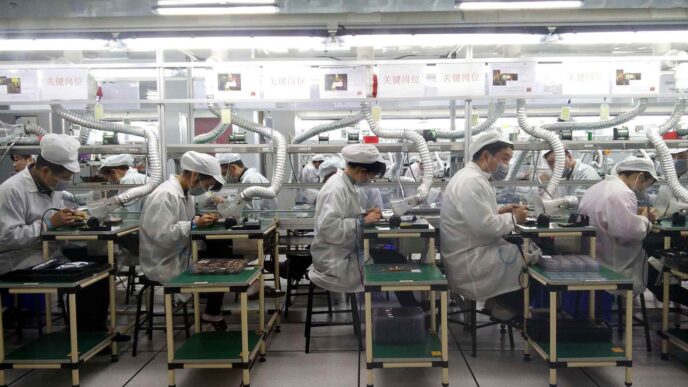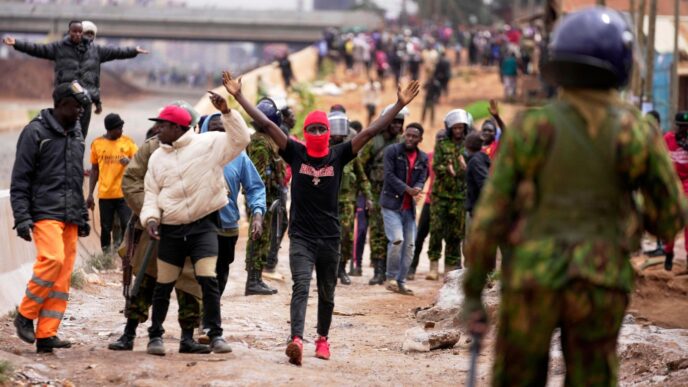As leaders gather at the Fourth International Conference on Financing for Development (FfD4) in Seville, a powerful new proposal—“A New Vision for Development Cooperation”—is emerging, calling for a fundamental overhaul of global aid and finance systems
Why the Model Needs Change
- Inherited from the past: Global development frameworks were built on a mid-20th-century Bretton Woods model—the OECD Development Assistance Committee (DAC)—designed for poverty reduction alone .
- Inadequate for today’s challenges: International development must now support climate resilience, global public goods, and humanitarian needs, amidst a rise in middle-income and emerging economies.
Core Elements of the New Vision
- Clear Development Agenda + Resources
Prioritize public investment with strategic clarity—support climate-resilient infrastructure and inclusive growth pipelines. - Redefine Public–Private Partnerships
Ensure private capital supports public value, with risk and reward shared equitably. Projects must truly align with community priorities. - Strengthen State & Institutional Capacity
Empower governments and multilateral entities—like the UN’s Development Cooperation Forum (DCF)—and amplify voices of developing nations. - Improve Multilateral Coordination
Anchor cooperation in national platforms, integrate bilateral and multilateral efforts, and back regional bodies like the African Union for better localization.
Financing the Future: Breaking the $4 Trillion Gap
- Funding shortfall: More than two-thirds of UN Sustainable Development Goals are off track, with an estimated $4 trillion needed annually ft.com+2reuters.com+2en.wikipedia.org+2.
- Blended finance underperformance: Existing mechanisms channel less than $15 billion/year—far below what’s required ft.com+1www1.project-syndicate.org+1. Reforming this is a priority.
Summit Commitments: “Seville Commitment” & Beyond
- The Seville Commitment, adopted by over 70 leaders in Spain, endorses reform measures, including equitable tax systems, expanded financing, and multilateral bank overhaul reuters.com+2apnews.com+2reuters.com+2.
- U.S. absence highlights tensions in global cooperation, but European leaders and UN officials are pushing forward apnews.com+1reuters.com+1.
Why It Matters
- Fixing systemic fragility: Nations burdened by high debt and thin fiscal space risk derailed development—this vision aims to build resilience.
- Multilateral revival: Revitalizing trust in institutions is key amid rising global inequality and fractured aid commitment.
- Equity & ownership: Locally-led platforms and balanced decision-making empower developing nations .
What to Monitor Next
- UN Summit outcomes in Brazil (COP30), South Africa (G20), and other forums will test these proposals.
- DAC + DCF coordination could reshape aid transparency and governance .
- New blended finance models tied to public value and climate aims will indicate realignment.
Final Thoughts
The “A New Vision for Development Cooperation” demands a shift from outdated, fragmented aid systems to inclusive, strategic, and well-funded frameworks. It places national ownership and global solidarity at the center, aiming to bridge staggering financing gaps and restore faith in multilateral action—essential if the world hopes to meet the 2030 SDG deadline.
Would you like a deeper dive into one of the key pillars—like blended finance innovation, DCF reform, or national cooperation platforms?
Plan Your Trip With Epic Click Travel & Tourism
Ready to book your travel getaway? Let Epic Click Travel & Tourism curate your journey — from flights and hotels to exclusive airport perks like fast-track check-in and chauffeur transfers.
Visit us: Office 2705, Silver Tower – Marasi Dr – Business Bay – Dubai
Call us: 4 572 6638 | 052 427 5718
Book online: epicclicktravel.com
Email: info@epicclicktravel.com
Follow us for travel inspiration: Epicclick_travel
















